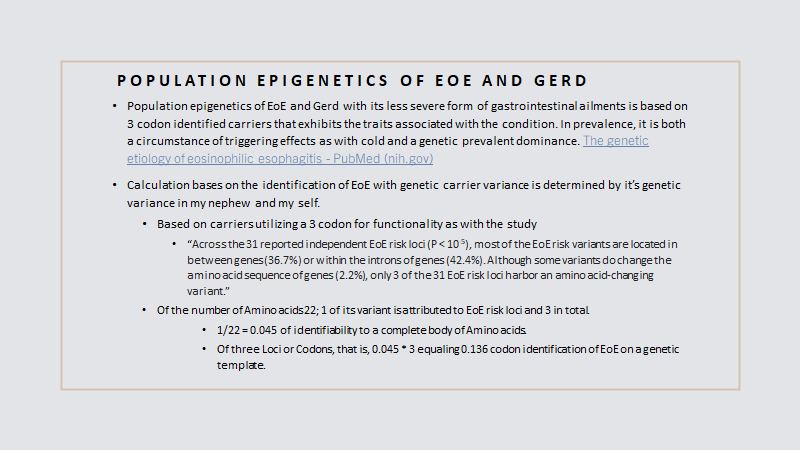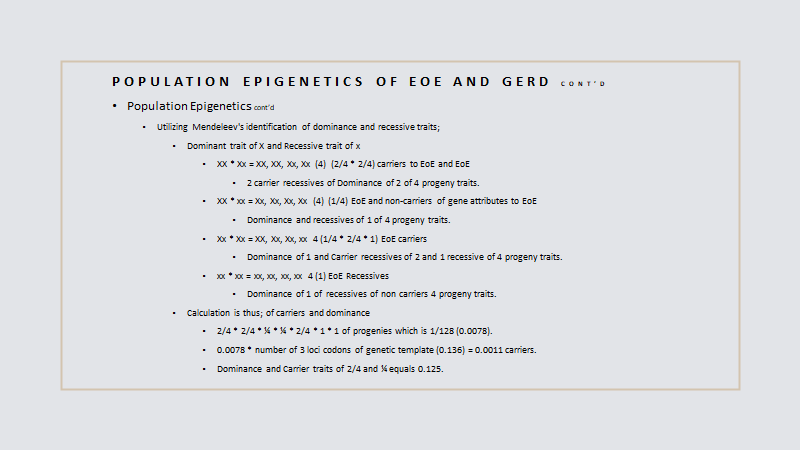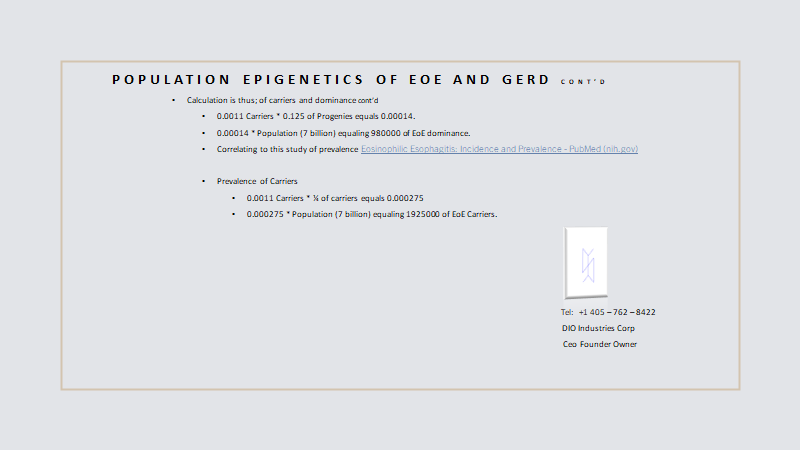
Epidemiology and Epigenetics of Gastrointestinal ailments.
"GERD is one of the most common gastrointestinal disorders, with a prevalence of approximately 20% of adults in western culture. A systematic review by El-Serag et al. estimated the prevalence of GERD in the US between 18.1% to 27.8%. However, the true prevalence of this disorder could be higher because more individuals have access to over-the-counter acid, reducing medications [2][13][2]. The prevalence of GERD is slightly higher in men compared to women [14]. A large meta-analysis study by Eusebi et al. estimated the pooled prevalence of GERD symptoms to be marginally higher in women compared with men (16.7% (95% CI 14.9% to 18.6%) vs. 15.4% (95% CI 13.5% to 17.4%) [12]. Women presenting with GERD symptoms are more likely to have NERD than men who are more likely to have erosive esophagitis [15]. However, men with longstanding symptoms of GERD have a higher incidence of Barrett's esophagus (23%) compared to women (14%)[16]."
"Several other risk factors have been independently associated with the development of GERD symptoms that include age ≥50 years, low socioeconomic status, tobacco use, consumption of excess alcohol, connective tissue disorders, pregnancy, postprandial supination, and different classes of drugs which include anticholinergic drugs, benzodiazepines, NSAID or aspirin use, nitroglycerin, albuterol, calcium channel blockers, antidepressants, and glucagon[10][11][12]." click here.
"Irritation of the upper gastrointestinal (GI) tract, including the esophagus, stomach and duodenum is a very common condition affecting over 25 million people in the US daily and up to 60 million Americans each month. There are 500,000 to 850,000 new cases each year in the US and over one million hospitalizations for these conditions each year. It affects persons of all ages. The range of symptoms spans from occasional irritation after eating a spicy meal to catastrophic bleeding and death from ulceration. Because of the spectrum of disease, airman/controllers using medication for these conditions may be required to demonstrate freedom from ulcers to maintain their medical certification. Most medications used to treat these diseases may be waived for use during aviation duties once the condition is controlled."
"Peptic ulcer disease (PUD) includes irritation, ulcer formation and scarring of the stomach or the first part of the small intestine, called the duodenum. Ulcers of the stomach are often caused by irritating medications such as aspirin or other non-steroidal anti-inflammatory drugs such as ibuprofen or naproxen. Stomach ulcers arising without provocative medications may precede stomach cancer. Ulcers of the duodenum are more common. They are not generally associated with cancer. Most duodenal ulcers have an infectious cause, contrary to earlier thoughts about the cause of these conditions." click here.
(Link 1.)
(Link 2.)
POPULATION EPIGENETICS PUBLICATION


